
News • Before symptoms develop
Novel MRI approach identifies Alzheimer's early
A mathematical analysis of data obtained with a MRI approach can identify brain cell damage in people at early stages of Alzheimer's.

A mathematical analysis of data obtained with a MRI approach can identify brain cell damage in people at early stages of Alzheimer's.
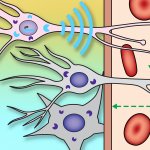
Using a novel probe for functional magnetic resonance imaging, researchers have devised a way to monitor individual populations of neurons and reveal how they interact with each other.
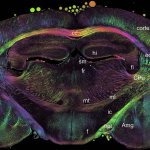
Scientists have developed a neutron-based method to study brain slices and gain a better understanding of neurological diseases.
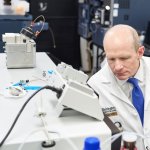
When combined with genetic risk factors, the test was up to 93 percent accurate at identifying people at risk of Alzheimer's dementia.

Young children are more optimistic than adolescents, which stems from not learning enough from bad outcomes.
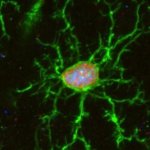
Pre-transplant chemotherapy facilitates the replacement of the brain's innate immune cells, by other immune cells derived from the transplanted stem cells.
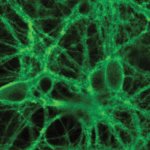
Researchers in Zurich have developed a fluorescent orexin biosensor to observe on of the brain's signaling molecules "live" to gain insights into constant daytime sleepiness (narcolepsy).
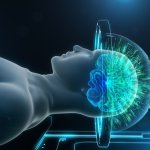
Children's National Hospital successfully performed the first-ever high-intensity focused ultrasound surgery on a pediatric patient with neurofibromatosis. This is the youngest patient to undergo HIFU treatment in the world.
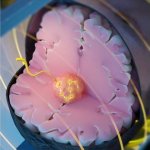
Scientists at University College London have developed a novel cancer therapy that uses an MRI scanner to guide a magnetic seed through the brain to heat and destroy tumours.

There has to date been no reliable objective method of diagnosing tinnitus. Now, Swedisch researchers may have found a way to measure changes in the brain associated with constant tinnitus.
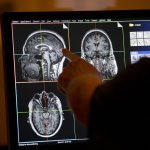
Cleveland Clinic has launched a landmark study to better understand why millions of people around the world suffer from brain diseases, with the goal of pinpointing disease biomarkers early, well before clinical symptoms present themselves.
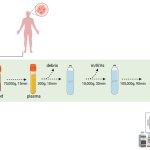
Researchers at the University of Sussex are one step further to developing a blood test capable of diagnosing the most aggressive form of brain tumour.
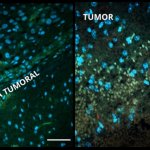
In both the mice and organoids, cytokines suppressed tumor growth after treatment, and defense cells migrated to the brain region affected by the tumor, alerting the immune system to its existence.
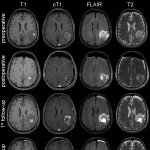
New research has pinpointed ethnicity as a potential factor in brain tumour survival. A UK study showed that white British people who have been diagnosed with a malignant primary brain tumour appear to have an increased one-year mortality than patients from at least four other ethnic groups.
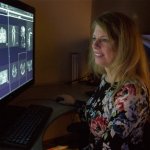
Researchers have studied the Spaceflight-Associated Neuro-Ocular Syndrome (SANS). For that they compared brain scans before and after spaceflight.
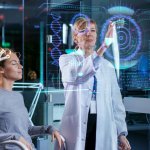
Connecting the brain with a machine has been a powerful dream of mankind. What used to be science fiction, from the Borg in Star Trek to the Matrix, has become mainstream thanks to Elon Musk and Mark Zuckerberg who have put their entrepreneurial commitments into the area of neurotechnology. Recently, Professor Surjo R. Soekadar outlined current and upcoming applications of brain-computer…
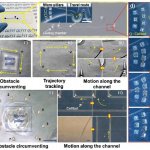
The joint research team of Prof. Hongsoo Choi (DGIST) & Prof. Sung Won Kim (Seoul St. Mary’s Hospital), developed an hNTSC-based microrobot for minimally invasive delivery into the brain tissue via the intranasal pathway.
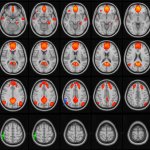
Adolescents and young adults with post-concussive symptoms who suffered three to five concussions showed disruption in the default mode network, an interconnected network of brain regions involved in wakeful rest and internal thoughts.
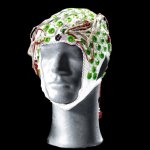
‘Bittium NeurOne is one of the quickest and most accurate EEG measuring devices in the world designed for clinical and research use,’ the manufacturer reports. ‘Bittium NeurOne system enables fully synchronised group measuring of up to 30 people simultaneously, for example in different types of psychological studies. ‘The solution is optimised for use with transcranial magnetic…
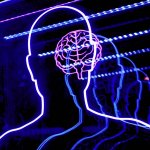
Treating diseases such as Alzheimer’s or Parkinson’s is a challenge because drugs have to be able to cross the blood–brain barrier. As a result, the doses administered must be high and only a small fraction reaches the brain, which can lead to significant systemic side effects.
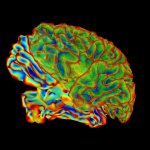
For the first time, researchers have used human data to quantify the speed of different processes that lead to Alzheimer’s disease and found that it develops in a very different way than previously thought. Their results could have important implications for the development of potential treatments.

The mechanisms by which the body measures temperature and regulates its own body heat are vital, but still poorly understood. The discovery of the first heat sensor on nerve cells in the skin, for which the U.S. molecular biologist David Julius received this year's Nobel Prize for Medicine, was therefore pioneering. However, a very similar heat sensor, the protein TRPM2, is active not only in the…
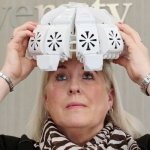
Researchers at Durham University are working on a new infrared light therapy that might have the potential to help people with dementia. In the approach, people wear a specially adapted helmet which delivers infrared light deep into the brain for six-minutes per treatment. This stimulates mitochondria that generate most of the chemical energy needed to power the biochemical reaction in the…
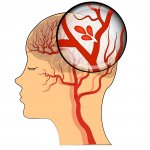
A new study shows that women are underrepresented in stroke clinical trials relative to the number who have strokes in the general population. The research is published in Neurology, the medical journal of the American Academy of Neurology. “Making sure there are enough women in clinical studies to accurately reflect the proportion of women who have strokes may have implications for future…
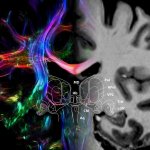
Neuroscientists at Technische Universität Dresden discovered a novel, non-invasive imaging-based method to investigate the visual sensory thalamus, an important structure of the human brain and point of origin of visual difficulties in diseases such as dyslexia and glaucoma. The new method could provide an in-depth understanding of visual sensory processing in both health and disease in the near…